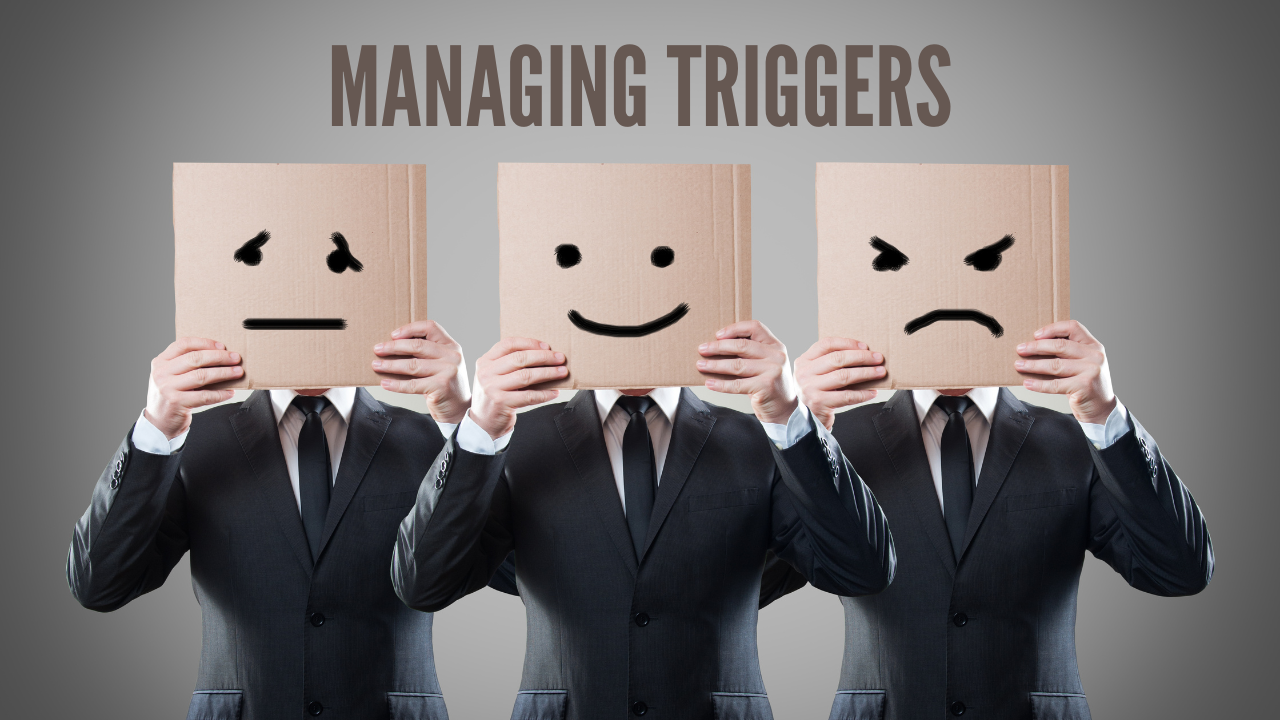Managing Triggers Is Critical To Recovery

Issue No. 43 | Brought to you by the Addiction Reset Community – ARC
Unlocking the secrets of processed food addiction and guiding you to find freedom from food and weight obsession.
 Underestimating triggers is a big mistake in recovery from Processed Food Addiction.
Underestimating triggers is a big mistake in recovery from Processed Food Addiction.
There is a common myth in both the weight management and food addiction recovery circles, that the only trigger of overeating is the food itself. Various eating programs position themselves as the best way to stave off hunger and eliminate cravings for processed food, by reducing or eliminating macronutrients or entire food groups.
While these ways of eating may have various benefits, they underestimate the severity of processed food addiction and the complexity of the variety of triggers that cause relapse. This myopic approach to focusing only on the food leads to the false belief that if you have any longing, craving or urge to eat processed food, while on your clean food plan, then you must be doing something wrong with your food.
Another myth in the field of processed food addiction recovery is that once your food is clean of addictive substances and you’ve had a certain period of abstinence, you should be able to go anywhere and be in any environment with processed food and not be triggered by it.
These misconceptions contradict what is shown in the research. Studies reveal that triggers lead to cravings which overwhelm the brain’s ability to maintain control of healthy food choices. Research shows that the food itself is only 1 of 6 different categories of triggers in processed food addiction. Once you are able to identify triggers across all categories, you can learn how to avoid them completely, and in time, train your brain not to respond to them.
6 Categories of Triggers, And How to Manage Them
Food: In previous issues of this newsletter, we have discussed how processed foods resemble harmful, addictive drugs. Since Big Tobacco moved into Big Food in the 1980s, an addiction business model has been used to drive the commercial interests of processed food manufacturing companies. They continue to use shameless product development and marketing tactics to cause cravings and overeating in both adults and children. Having access to scientific information about the consequences of these foods and knowing which foods to avoid, is the cornerstone of food addiction recovery.

Emotions: Emotions cause a craving reaction and the cravings shut down the brain’s frontal lobe, making it extremely difficult to make good decisions. Food addiction recovery support groups must provide a safe, compassionate environment with skills and tools to share, manage and reframe big emotions.
Relationships: Research shows that if you are in a difficult relationship or spend time with someone who is mean to you, with people who encourage you to eat processed food, you will relapse more often. Such relationships make it hard to resist eating the food. If you’re in such situations, then it’s important to also spend more time with kind people who abstain from processed food, and who prioritize a healthy lifestyle while supporting you with kindness and compassion. This will help to counterbalance the effects of negative relationships. Activating mirror neurons, your brain will leverage conformance drive, your natural desire to fit in, to help you develop resistance to the effects of negative relationship triggers and begin to mimic the behavior and lifestyle choices of the healthy people you spend time with.
Environment: The food industry has strategically created and triggered an environment to provoke craving and promote processed food addiction. When you have intense cravings the willpower part of your brain is shut down. You cannot crave and think clearly at the same time. Marketing tactics are engineered to provoke cravings. From the signage you see along your route, to the advertisements popping up on social media, the commercials in magazines and on television and the layout of your local grocery store - your brain is being triggered to crave. Learning skills and useful tools to navigate a triggering environment are critical to recovery from processed food addiction.

Body: Body triggers include feelings of shame or anxiety about body image or body shape, as well as dealing with the consequences that processed food has on the body. Aches, pain and illness can lead to distress which triggers cravings. Focusing on managing the addiction rather than focusing on weight management is a key shift needed for a healthy mindset. Developing kind, compassionate and patient self-talk is a powerful recovery skill.
Loneliness: Research shows that loneliness is one of the triggers that leads to cravings and relapse or overeating. Spending time in a supportive, kind community of like-minded people who understand the challenges of living with processed food addiction can help to reduce feelings of loneliness.

Taking back control of food and enjoying long-term abstinence from processed foods will require understanding and management of all 6 trigger categories. The recovery support, skills, techniques and tools of the Addiction Reset Community are all rooted in scientific research on these categories of triggers.

Within the Addiction Reset Community (ARC) our members and their journeys are important to us. We find their stories inspiring and hopeful for everybody in health recovery.
"It was such a relief to know that I wasn’t always to blame for falling off my meal plan. I believed that it was a character flaw or a lack of willpower that kept me going back to processed food again and again. Knowing how to identify and manage triggers and cues has made the world of difference. I finally feel like I’m in the driving seat. I’m no longer making decisions like an overeating robot!”

Many people reach out to Joan asking for advice and assistance on how they can begin their recovery journey.
Dear Joan:
High blood pressure runs in my family. My grandfather had numerous strokes before he passed and my father has been on medication since his 40s. When I started a clean food plan, my blood pressure was bordering on needing medication to control it. However, once my clean eating was established, my blood pressure returned to normal levels. Is there a link to processed foods?
Joan responds:
Yes, there is a link. A simple explanation is that the refined carbohydrates in processed foods enter the bloodstream quickly because they're already ground into a powder or processed into a crystal. They, therefore, make the blood thick. It's harder for the body to push thick blood to all the cells so the body increases the pressure on the blood flow.
DISCLAIMER:
Dr Joan Ifland (PhD) is a global expert on the subject of processed food addiction and is not a medical doctor. Information and response shared in this Newsletter are not intended for, and should not be construed as medical advice.
Do you have a question? Reach out to us with your questions about food addiction and recovery at gethelp@foodaddictionreset.com
Are you showing signs of Processed Food Addiction? Take this self-quiz to find out now!
Recent copies of Dr Joan Ifland's Blog:
Issue 01 | Issue 02 | Issue 03 | Issue 04 | Issue 05 | Issue 06 | Issue 07 | Issue 08 | Issue 09 | Issue 10 | Issue 11 | Issue 12 | Issue 13 | Issue 14 | Issue 15 | Issue 16 | Issue 17 | Issue 18 | Issue 19 | Issue 20 | Issue 21 | Issue 22 | Issue 23 | Issue 24 | Issue 25 | Issue 26 | Issue 27 | Issue 28 | Issue 29 | Issue 30 | Issue 31 | Issue 32 | Issue 33 | Issue 34 | Issue 35 | Issue 36 | Issue 37 | Issue 38 | Issue 39 | Issue 40 | Issue 41 | Issue 42


